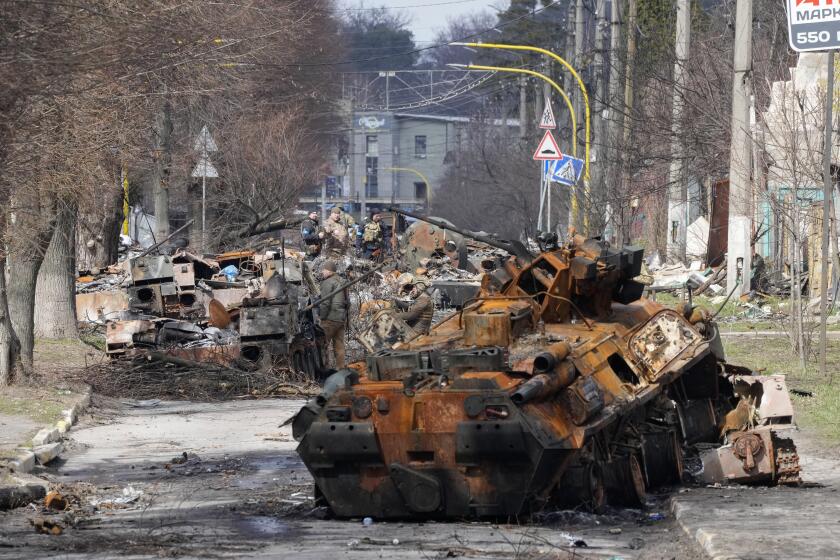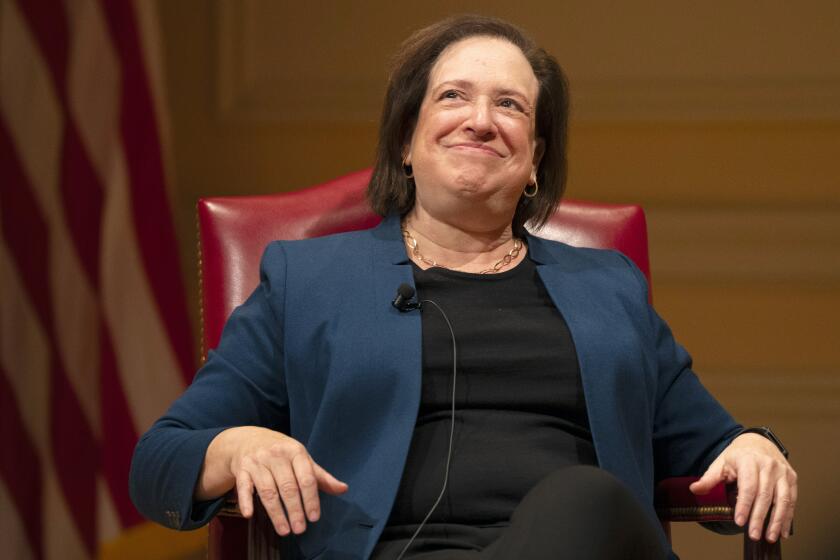At NATO, Biden’s top diplomat keeps eye toward leaders not condemning Putin
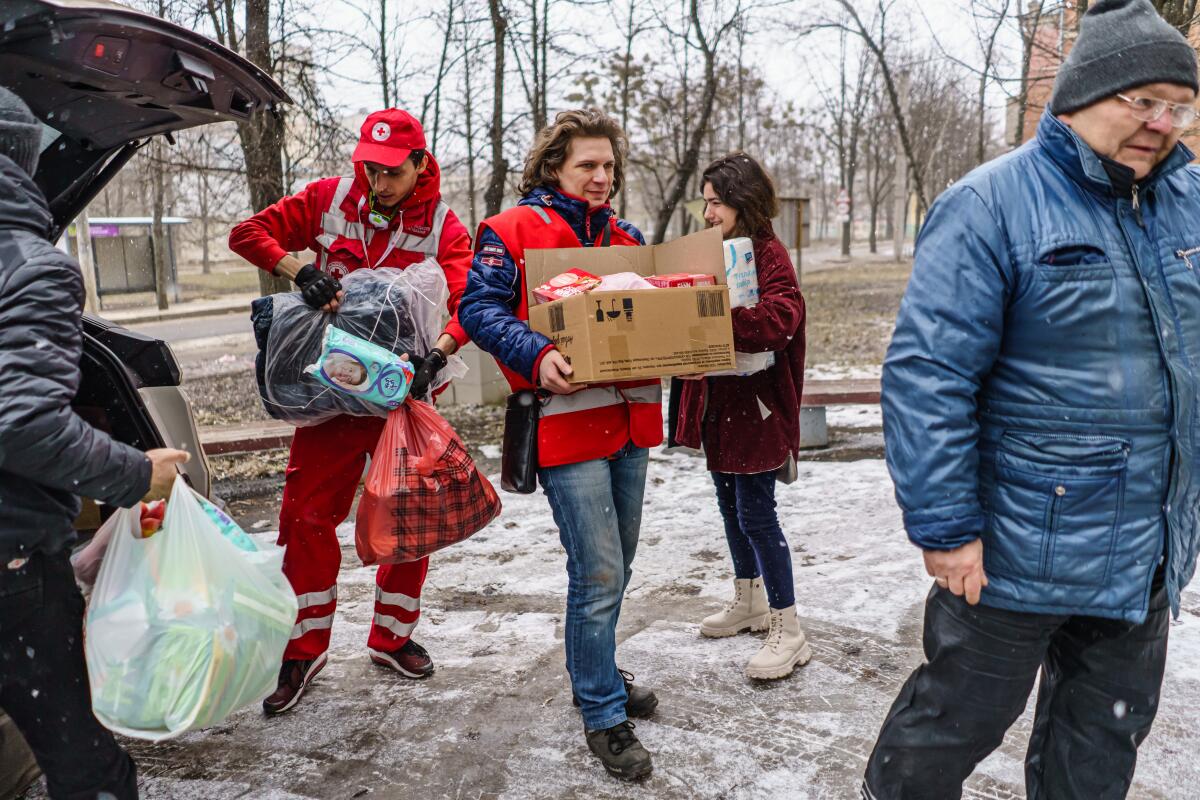
Secretary of State Antony J. Blinken is in friendly territory: the headquarters of NATO, where most European leaders are supportive of U.S.-led efforts to punish Russia and help Ukraine.
But what does a skilled diplomat like Blinken do about the many countries not on board? Does he pressure, promise or punt?
Before he traveled Tuesday to NATO headquarters in Brussels, Blinken spent hours on the telephone with leaders of strategically important countries whose reluctance to join the campaign has most perturbed the administration. Among this group are strong U.S. allies like India, Israel and the United Arab Emirates.
Blinken spoke to India’s foreign minister twice in the last week. His aides declined to say whether there was any indication that India, or anyone else, had changed its position to condemn Russia. “We’ll see,” was the general response.
Here in Brussels, Blinken expected that members of the North Atlantic Treaty Organization along with the European Union would come together with yet another batch of economic sanctions to impose on Russia, as well as packages of aid — lethal weapons and medical supplies and food — for Ukraine. The administration has repeatedly extolled its success in bringing allies together for an unprecedented unity in this cause.
“Obviously in the wake of the horrific images coming out of Bucha, we now feel even more compelled to take a fresh look at additional forms of assistance, individually, collectively, any way that we can,” U.S. Ambassador to NATO Julianne Smith said in a briefing Tuesday.
Britain, which is no longer part of the EU, announced sweeping new sanctions Wednesday, including freezing all assets of Russia’s largest bank, promising to stop Russian coal and oil imports by year’s end and targeting more oligarchs. Meanwhile, the Biden administration sanctioned Russian President Vladimir Putin’s two daughters and the family of Foreign Minister Sergei Lavrov and also targeted two major Russian financial institutions.
The European Union, however, failed to agree on additional sanctions that would ban Russian coal, among other restrictions. The group was to continue negotiations on Thursday, further demonstrating the challenges of increasing support even among the willing.
Ukrainian leader Volodymyr Zelensky hopes to channel outcry over evidence of Russian atrocities into Nuremberg-style tribunals.
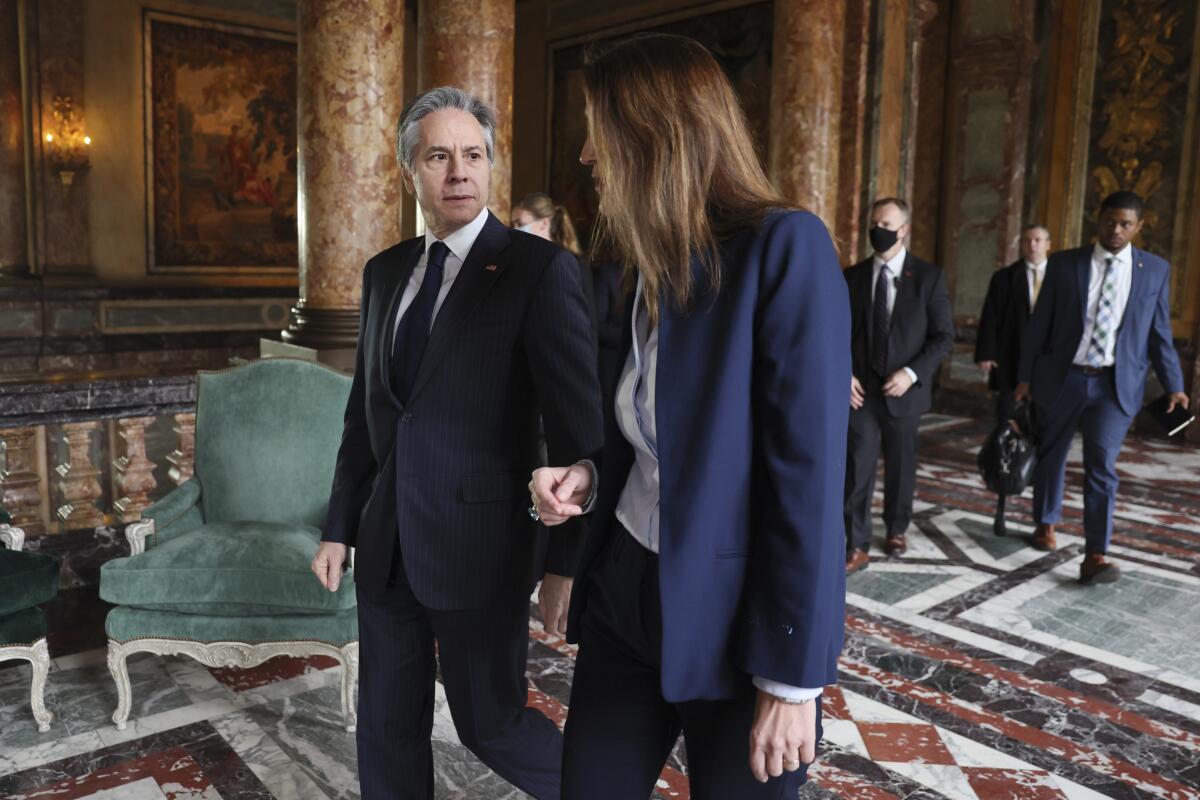
Despite the EU’s lack of action, the argument in Brussels is a relatively easy one for Blinken. European leaders, confronting a disastrous war on their eastern edges, have more at stake than anyone.
Even within this Western alliance however, there are strains — the United States and powers like Germany remain at odds over imports of Russian energy and other issues.
Asked whether the alliance unity can be maintained in what may stretch out to be a conflict of months, even years, White House spokesperson Jen Psaki acknowledged the challenge.
“‘Unity’ does not mean ‘identical,’ ” she said, speaking to reporters Tuesday. “And as we’re looking at the consequences people are putting in place, the actions they’re taking, our expectation is not that it is identical. It is just our effort to do everything we can to make sure it’s coordinated, and it’s unified as it possibly can be.”
Blinken’s hand may be strengthened by the emerging reports of atrocities that the Ukrainians blame on Russian occupying forces, and whose photographs and videos of Ukrainians shot in the head or buried in hastily dug mass graves have revulsed many parts of the world.
In Bucha, a suburb north of Kyiv, and possibly other towns, Russia engaged in “a deliberate campaign to kill, torture, rape,” Blinken told reporters who traveled with him to Brussels.
“This reinforces our determination — and the determination of countries around the world — to make sure that one way or another, one day or another, there was accountability for those who committed these acts, those who ordered them,” Blinken said.
Yet it was not clear that other countries beyond NATO and the European Union would in fact rush to join a campaign pushing for the prosecution of Russian President Vladimir Putin on war crimes charges. U.S. officials privately acknowledge that some countries may continue to sit this one out.
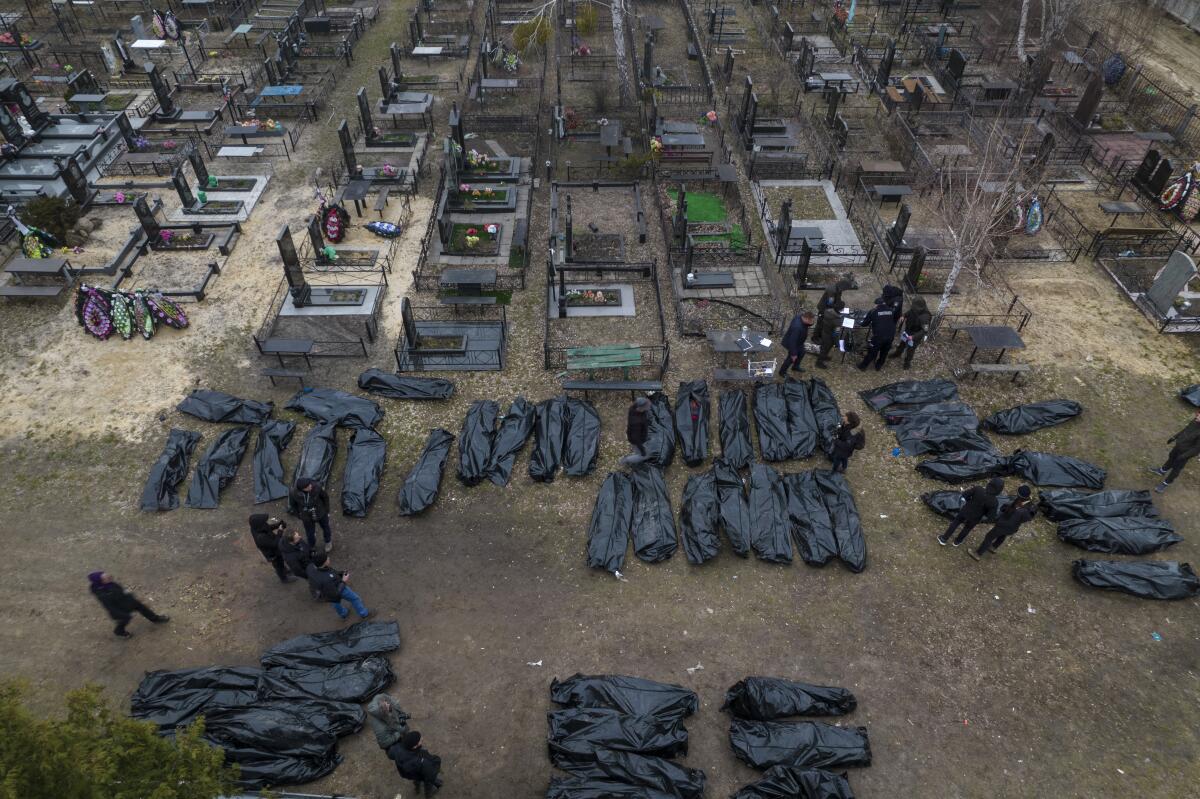
Each country has its reasons for siding with Russia or, at least, stepping gingerly where Moscow is concerned. Many have strong trade ties or depend on Russia for energy and weapons, like India. There is also anti-U.S. sentiment among some, or a perception that the U.S. and NATO are partly to blame for the catastrophe unfolding in Ukraine because of their expansion to countries closer to Russia’s borders, which Putin views as a provocation. Some have had a long diplomatic or political connection to Moscow, or, in the case of countries like increasingly autocratic Hungary, a new one.
U.S. officials are hoping that if some countries can’t make a full commitment to confronting Russia, they can make other contributions, such as diplomatic efforts or strictly humanitarian aid. One example is Israel, whose Prime Minister Naftali Bennett might still be able to pursue a supposedly neutral position of mediator between Russia and Ukraine.
The next big test for whether the U.S. has support for expanding its base in this fight is in an upcoming U.N. General Assembly vote to kick Russia out of the body’s Human Rights Council.
The resolution proposed by the United States is, Biden administration officials acknowledge, extraordinary, but they contend that a Russian presence on the human rights monitor is a travesty and maintain they can marshal the votes necessary.
“Given the growing mountain of evidence, Russia should not have a position of authority in a body whose purpose — whose very purpose — is to promote respect for human rights,” the U.S. ambassador to the U.N., Linda Thomas-Greenfield, told the body Tuesday. “Not only is this the height of hypocrisy — it is dangerous.”
Russian Ambassador Vassily Nebenzia responded with the stock response of his government, that the bodies in Bucha were part of a scenario staged by “Ukrainian neo-Nazis.”
He warned countries against being “manipulated” by Washington.
Following the day of meetings with its transatlantic allies Wednesday, Blinken lauded the “extraordinary unity” the U.S. and its NATO partners have shown in the the aftermath of Russia’s invasion. That unity stands in contrast to the years of the Trump administration, when the former president was dismissive of NATO and international alliances in general. Since taking office, Blinken has worked to repair the damage done during that time.
Staff writer Eli Stokols contributed to this report from Washington.
More to Read
Get the L.A. Times Politics newsletter
Deeply reported insights into legislation, politics and policy from Sacramento, Washington and beyond. In your inbox three times per week.
You may occasionally receive promotional content from the Los Angeles Times.
